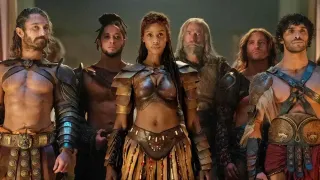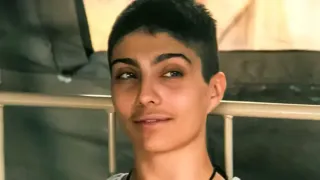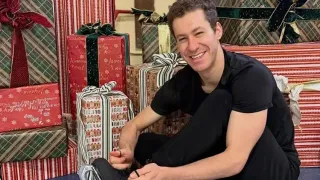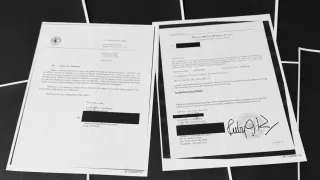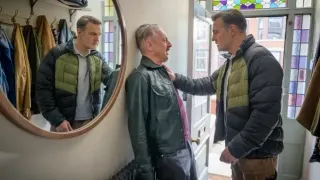July 19, 2015
Website Curates Coming Out Stories
Kilian Melloy READ TIME: 5 MIN.
Some of the stories are from anonymous posters, such as one by a gay man from the Middle East now living in the U.S. but still concerned about people from his home country learning about his sexual orientation.
"I'm Middle Eastern and I come from a culture where being gay is not acceptable. Technically, I could go to jail or even worse if anyone back in the Middle East were to know I am gay," wrote the Chicago resident.
Other contributors choose to use their full names in writing about the difficult conversations that took place between them and their loved ones, whether parents, siblings, or friends, in revealing their true selves.
"Coming out was not easy. Becoming the person I am today was not easy. Opening their minds to the fact that our family is far from traditional was not easy for my parents, but we did it together," wrote Ricardo Sebastian, a gay man living in the South Bay region of southern California near Los Angeles.
Theirs are just two of the 18 short essays posted so far to a new website called Coming Out - http://www.comingout.space/ - where LGBT people can write about how they broke out of the closet. Created by Nate Warden, the site launched Friday, June 26 to coincide with the Pride weekends taking place throughout North America at the end of June.
"Everyone has unique stories about coming out to friends and family. Some of us were very young, some older, and most of us were very alone," said Warden, 25, who is moving from Toronto to New York City next month. "Imagine if we could see how others did it - to use their stories as a guide or to help find the strength to go through a difficult time."
Originally from Cincinnati, Ohio, Warden began to come out of the closet about being gay while in college. It was an "emotional experience," as he writes in his own essay titled "It's hard. It hurts. I know." on the website (http://www.comingout.space/its-hard-it-hurts-i-know/).
"Growing up in a small Ohio town pushed me to the limit - just close enough for me to look over the edge and into the abyss," wrote Warden, who works for the Nielsen ratings company. "But coming out in a small Ohio town also set me free - free to be my true, unlimited self and I've never looked back."
In his first press interview about the site, Warden told the Bay Area Reporter that the idea for Coming Out was sparked in January. He noticed that the information online about coming out appeared to be scattered across various websites.
"The truth is there is a good wealth of information about it online, but it is very fragmented," said Warden. "To find something meaningful to you as an individual takes a lot of time to get to. Even then, you may not find it."
He sees the site as being different from the video-based It Gets Better Project, which launched in 2010 in response to a rash of LGBT teen suicides that had gained wide media attention. For one, it addresses an often-heard complaint about the earlier project that even after LGBT people come out they oftentimes continue to endure harassment, discrimination, or abuse as adults.
"As encouraging as it is that these issues are being talked about in the mainstream media, the truth is it doesn't always get better. That sugar coats a difficult time for a lot of people," said Warden. "People talk about how hard it can be and to know it sometimes doesn't get better right away. Sometimes it doesn't ever."
Depending on the success of the Coming Out site, people may be able to post videos at some point. For now the site is solely focused on personal essays 500 words in length or less.
Submissions can be sent in anonymously or include a person's photo and full name. Warden also welcomes what he called "coming out stories told in reverse," meaning essays written by straight people about how their friend or family member came out to them.
"The only thing not optional is an email address at which we can reach you," said Warden, who has been approached by several online sites, such as the Huffington Post, about cross posting content from those who consent to do so.
Warden and two other people are volunteering their time to oversee the site, which he said he does not intend to monetize for personal gain. He would like to reach a point where the site can sustain itself either through advertising or sponsorships.
"I am not looking to make it for profit. I am working on it to be nonprofit to cover the costs of maintaining the site and hiring a site administrator," said Warden, who is paying several hundred dollars out of his own pocket for the domain name and cost of hosting the site.
Several themes already have emerged in the coming out stories submitted to date, said Warden. Many people conclude their essay by saying how much better off they are for having come out, he noted.
"People are ending most essays with something to the extent of it is hard but I am so much happier now. I am the best version of myself now, which I wasn't before," he said. "Another theme is I am happy I came out but being gay, lesbian, bisexual, or transgender is only one small part of who I am. It doesn't define me."
Jay Vallone, 34, who lives in Orange County in southern California, began his coming out process two months ago. He saw the Coming Out website mentioned in a tweet on his Twitter feed and decided to submit an essay, which he titled "My Journey to Coming Out." It can be read at http://www.comingout.space/my-journey-to-coming-out/.
"I just recently came out. I needed to write it down and I needed to tell it for my own reasons," Vallone, who was raised in a Roman Catholic household and has mixed reactions to his revealing he is gay, told the B.A.R. in a phone interview. "It is something you need to get off your chest. You hold it in for so long, it kind of eats away at you. It feels good to release that pent up energy."
He said he considers what Warden is doing with the site to be heroic, as so often LGBT people still in the closet feel they are on their own.
"There are so many of us who are silent. They need to know there is support out there," said Vallone, who works in insurance. "The stories are great too, you know. It is tremendous; I think it is very heroic of people to do that."
